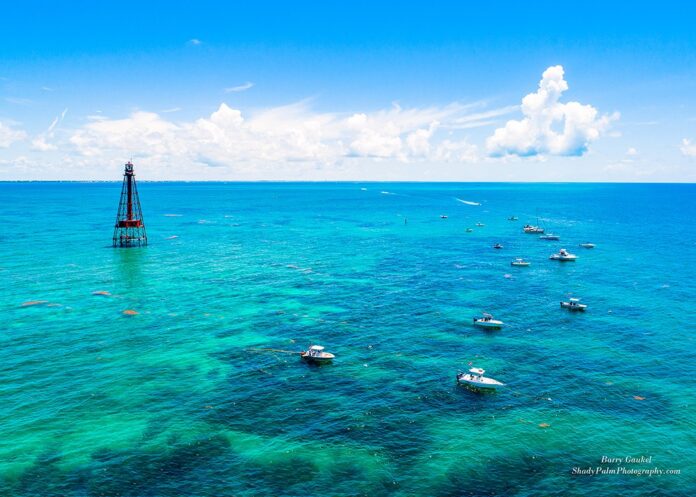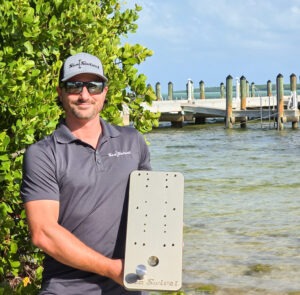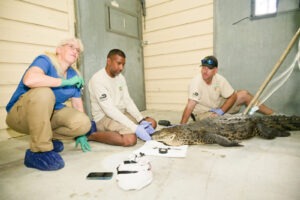In a move striking a critical blow to the Florida Keys’ marine ecosystem, Gov. Ron DeSantis has vetoed all components of the Florida Keys National Marine Sanctuary’s (FKNMS’) newly-finalized Restoration Blueprint in state waters.
In a March 3 letter to U.S. Secretary of Commerce Howard Lutnick, DeSantis wrote that the final proposed plan “repeals longstanding references to the State of Florida’s sovereign right to manage marine life and sovereign submerged lands within the state’s jurisdictional waters. Further, NOAA’s regulations will prevent the expedited restoration of coral reefs using artificial habitats.”
Restoration Blueprint is a comprehensive proposal to restore the sanctuary, ignited by a worrisome 2011 condition report on the state of Florida Keys waters. After 14 years of drafting and input by the public and stakeholder organizations, the final rule for Restoration Blueprint was signed on Jan. 16, kicking off a 45-day review period on DeSantis’ desk.
The document was the first overhaul of regulations within the FKNMS since the sanctuary’s establishment in 1990. Under the new rule, sanctuary boundaries expand by roughly 20%, mostly along the FKNMS’ Atlantic edge.
Included in the document’s laundry list of changes are: alterations, eliminations and additions of Sanctuary Preservation Areas (SPAs); new Wildlife Management Areas (WMAs) to protect nearshore habitats and vulnerable species; changes to catch-and-release fishing inside SPAs; prohibition of discharges by cruise ships; prohibitions on attracting and feeding wild fish and sharks by boaters and divers; and protection of areas undergoing active coral restoration, among others.
Both items specifically cited by DeSantis in Monday’s letter, signed on the final day of his review period, were points of contention between officials with NOAA and FWC during the final stages of Restoration Blueprint’s revisions.
In November, a letter sent from FWC chairman Rodney Barreto to then-Sanctuary Superintendent Matt Stout reignited a debate from earlier in the year over regulatory language in the blueprint, criticizing a change that would only allow DeSantis to veto fisheries regulations in state waters.
It ultimately listed 10 remaining “essential” items of disagreement between FWC and sanctuary officials slated for inclusion in the final rule, including continued allowance of drift fishing, bait fishing and catch-and-release trolling in certain portions of SPAs, and new artificial reefs within sanctuary boundaries.
“While FKNMS has consistently stated that it does not intend to circumvent FWC’s authority over fisheries regulations in state waters … (the changes are) contrary to how fisheries regulatory authority is set up in the State of Florida,” Barreto wrote.
DeSantis’ letter on Monday echoed the prominent sticking points from Barreto’s statement.
Tension from the November letter carried over into a December meeting of the Sanctuary Advisory Council (SAC), where sanctuary officials said the letter was received too late in the review process to make significant changes to the Blueprint. But FWC federal fisheries section leader CJ Sweetman said the sticking points raised in the letter were “common knowledge … throughout the entire process. So nothing in that letter should have been a surprise in any capacity.”
Both sides pledged to meet in the weeks following December’s SAC session, but in follow-up emails and calls by the Weekly, FWC representatives would not confirm the outcome of the meeting, or if it took place.
Former Sanctuary Superintendent Sarah Fangman, who held the post throughout most of Restoration Blueprint’s drafting and review process, repeatedly expressed hope that DeSantis would review the Blueprint with a “scalpel, not a sledgehammer,” vetoing individual items rather than the plan as a whole.
Although DeSantis’ pen nixed updated regulations in state waters, the provisions of Restoration Blueprint remain in effect in federal waters – covering roughly 51% of the sanctuary. In the Keys, state waters extend from shore to three nautical miles in the Atlantic Ocean and to nine nautical miles in the Gulf.
“The new science-based management plan reflects a balanced approach and responds to challenges that are putting the environment and economy of the Florida Keys at risk, including marine heat waves, coral diseases, intensified hurricanes and increased human uses,” said FKNMS communications and outreach manager Scott Atwell in a press release following DeSantis’ letter.
“We believe the actions we are taking in federal waters will support improvement of the sanctuary’s delicate ecosystem and marine resources. We will continue to work with state agencies to protect this critical area for years to come.”
“The reality is that we need both the state and federal partners to get together and co-manage the Florida Keys marine ecosystem, for the benefit of all people that live and visit here,” Sanctuary Advisory Council chair Ben Daughtry told the Weekly.
He pointed to a new adaptive-management group, established to provide a faster regulatory response to critical events such as 2023’s devastating marine heat wave, as a critical component of increasing communication and finding common ground between agencies moving forward.
“I have high hopes that the adaptive-management group we’ve been working on will be a key component to helping to make that happen,” he said.




















